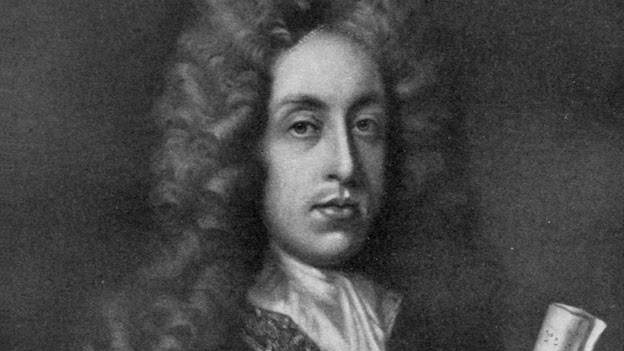Henry Purcell's Come Ye Sons of Art
Throughout September, the Daily Classical Music Post celebrates the music of 15th-, 16th-, and 17th-century England.
The greatest composer in 17th-century England, Henry Purcell (1659–1695), wrote music that was the culmination of a century of glorious music in the British Isles. Although there are elements of the great English Renaissance in his works, Purcell was a Baroque composer. He somehow managed to combine Italian and French styles with his own unusual English ideas, and there was no one like him during his short life, and certainly no one like him after he died.
Purcell came from a family of musicians, and he was a chorister in the Chapel Royal from a very young age. He started composing when he was about nine years old, and his teachers included Pelham Humfrey and John Blow. Blow was organist of Westminster Abbey but resigned in favour of Purcell. Although Purcell mostly wrote sacred music, he did write music for the theatre, and his chamber opera Dido and Aeneas is considered to be the first real opera in English (although some consider Blow's Venus and Adonis to be the first). He wrote incidental music for several Shakespeare plays as well as for many Dryden tragedies. Purcell was also appointed organist of the Chapel Royal and he held this position at the same time as the one at Westminster Abbey.
No one is quite sure why he died so young; his death often is attributed to tuberculosis, but there are some accounts that have him succumbing to a cold after he got locked out of the house by his wife one rainy night. In any event, English music did not recover from the death of this extraordinary composer until (IMHO) the late 19th century.
Purcell was a great favourite of the sovereigns at the time, William and Mary, and the king asked Purcell to write a birthday ode in 1694 in honour of the queen. Nahum Tate, who was England's poet laureate at the time, is believed to have written the text to Come Ye Sons of Art, Z.323, also known as Ode for Queen Mary's Birthday. This wonderfully joyful work has some of my favourite Purcell music in it, including the wonderful countertenor duet Sound the Trumpet.
My classical post for today is Henry Purcell's Come Ye Sons of Art.





Comments
Post a Comment